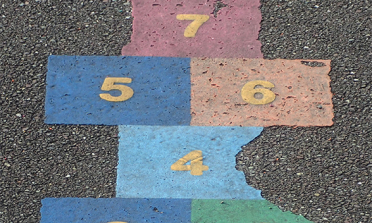We carry out activities involving our extensive network in EASNIE member countries. The aim is to provide member countries and stakeholders at the European level with evidence-based information and guidance on implementing inclusive education systems.
Read about the various EASNIE activities in detail below. You can use the filters to search and select the activities you want to see based on their theme, the participating countries, or the years they took place in. You can select multiple filters to narrow down your search.
This is a list of EASNIE activities in chronological order.
For further information on any of the EASNIE activities, please contact the Secretariat: secretariat@european-agency.org

Shutterstock / Ground Picture
Learner Participation in Inclusive Education
The Learner Participation in Inclusive Education (LPIE) activity focuses on gathering and using meaningful qualitative data on learners’ socio-emotional participation in inclusive education.

Shutterstock / metamorworks
Thematic Country Cluster Activities
As part of its aim to be an active agent for change, EASNIE has developed a new way of working with its member countries. The Thematic Country Cluster Activities (TCCA) began in 2023, addressing EASNIE member countries’ priorities by working in small clusters of countries.

Shutterstock / fornStudio
Country System Mapping
In a departure from the Agency’s previous thematic activities, Country System Mapping (CSM) considers the whole education system. It examines how certain structures, mechanisms and processes may impact on the implementation of inclusive education policy in practice.

Shutterstock / Ground Picture
Technical Support Instrument actions
Since 2018, EASNIE has been a technical provider for several actions under the Technical Support Instrument (TSI), previously known as the Structural Reform Support Programme (SRSP). The European Commission’s SG REFORM provides technical support to EU countries that wish to reform their public systems.

Shutterstock / Rawpixel.com
Legislative Definitions around Learners Vulnerable to Exclusion
The Legislative Definitions around Learners Vulnerable to Exclusion desk research activity addresses how Agency member countries legally define concepts around learners who are vulnerable to exclusion.

European Agency Statistics on Inclusive Education
The Agency’s data collection activity (EASIE) provides focused data that informs country policy priorities on inclusive education, the European Commission’s strategic objectives on inclusive education and the implementation of Article 24 of the United Nations Convention on the Rights of Persons with Disabilities (2006).

Shutterstock / Monkey Business Images
Key Principles
The Key Principles publications systematically present recurring messages in Agency work that support the implementation of high-quality education for all learners.

Shutterstock / Matej Kastelic
Teacher Professional Learning for Inclusion
The Teacher Professional Learning for Inclusion (TPL4I) project sets out to explore key aspects of this issue. The initial project work aims to identify the essential policy elements needed to prepare all teachers to include all learners.

Country Policy Review and Analysis
The goal of the Country Policy Review and Analysis (CPRA) work is to aid country reflection regarding the development of policy for inclusive education. It aims to act as a tool for stimulating discussion in the country concerned.

Shutterstock / Romolo Tavani
Financing Policies for Inclusive Education Systems
The Financing Policies for Inclusive Education Systems (FPIES) project systematically examines different approaches to educational financing and aims to identify effective funding policy tools that work towards reducing disparities in education.

Inclusive Early Childhood Education
The 3-year Inclusive Early Childhood Education (IECE) project focuses upon the fact that early childhood educational experiences have an important impact on a person’s life – provision of high quality early childhood education has positive effects on achievement and social adaptation of children.

Shutterstock / alphaspirit.it
Financing of Inclusive Education: Mapping Country Systems for Inclusive Education
The Financing of Inclusive Education project activities have focused on information collection via desk research and country data gathering in order to provide an update on the previous Agency financing study, as well as build on the findings of other Agency and international work.
